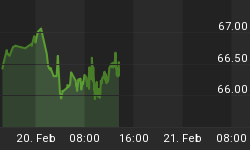Nowadays, for those in the business of managing other people’s money, the sky always seems to be falling. At a time when hedge funds are desperate to prove their smart-money status, they have hardly been covering themselves in glory thanks to their sagging gains. Part of it is by design since they are mostly built to mitigate risk during market downturns. As you would expect, the longest bull market in history has been running the industry roughshod with the market winning 9-out-of-10 times since the financial crisis.
This trend is showing no signs of letting up.
After trouncing the market last year, hedge funds are back to playing second-fiddle this year.
The $3.2-trillion industry managed to gain seven percent through April, a fairly good return by most counts. Still, the S&P 500 more than topped that after rallying 17.5 percent over the time frame. Preqin’s data shows that equity-focussed funds performed better after racking up a 9.3 percent return but still fell well short of the market benchmark.
Hedge fund winners crushing the market
That said, it’s worth noting that there are some players in the hedge fund universe that have actually been crushing the market.
Notably, Bill Ackman’s Pershing Square Holdings was up nearly 40 percent through April. Perhaps PSH’s strong performance can be attributed to recent offloading of some bad investments such as Valeant Pharmaceuticals. Consequently, the firm’s investment assets have shrunk by more than half over the past three years with assets under management (AUM) valued at ~$8 billion in February.
Meanwhile, Jason Mudrick’s eponymous fund is up 32 percent while David Einhorn’s Greenlight Capital had booked returns of 19 percent.
Related: Is A Gold Breakout Near?
Jason Mudrick is a $2.2 billion investment firm that specializes in distressed credit as well as deep-value event-driven investing while Greenlight Capital is well-known for its long-time outperformance having generated log-term annualized returns of ~15 percent. Last year though Greenlight Capital had an year to forget after tanking 34 percent, its worst loss ever.
This year seems to be bucking last year’s trend of large hedge funds being the industry’s top performers.
Last year, hedgies in general beat the broader market marking the first time this has happened since the 2008 financial crisis. Bridgewater popped a stunning 14.6 percent while Citadel’s flagship Wellington fund climbed 9 percent. Both of quant-focused Two Sigma’s funds expanded in double digits while one of Renaissance Technologies’ fund was up 8.5 percent.
Do hedge funds only outperform in a market sell-off?
The narrative around hedge funds only outperforming equities during market sell-offs needs to be taken with a grain of salt because it does not tell the entire story.
Assessing hedge-fund performance can be quite a challenge because thousands of funds are scattered across many uncorrelated investment strategies. Nevertheless, the HFRI Fund Weighted Composite Index is considered a good reference for broad hedge fund performance since it showcases a universe of hedge fund returns across multiple investment strategies.
Here are the key takeaways from comparing the HFRI Index vs. S&P 500 and the Barclays Aggregate Bond Index as a proxy for fixed income for the period spanning 1990-2017 segmented by four distinct seven-year periods:
- During the first three seven-year periods-- Jan.1990-Dec.1996; Jan.1997-Dec.2003 and Jan 2004-Dec.2010)--hedge funds actually out-performed equities by 300 to 500 basis points on both an absolute and risk-adjusted basis
- Over the most recent period—Jan. 2011 to Dec.2017—hedge funds underperformed the S&P 500 by a considerable margin
- Hedge funds though outperformed fixed income in all the four periods with less than half the volatility of equities
- It’s true that most hedged strategies out-performed equities during bear markets, managing to rack up positive gains in 2000-2002 and in 2008 at a time when the S&P 500 declined 40 and 50 percent, respectively.
Much has been written about the chief causes of the relative underperformance by hedge funds in recent times. However, the most significant contributors appear to be low interest rates, global appreciation of risk assets and quantitative easing.
Most of these factors are still in play, meaning we might be seeing more of the same in the foreseeable future.
By Alex Kimani for SafeHaven.com


















https://ftasatupdate.blogspot.com/2018/12/fta-satellite-channels-next-generation.html